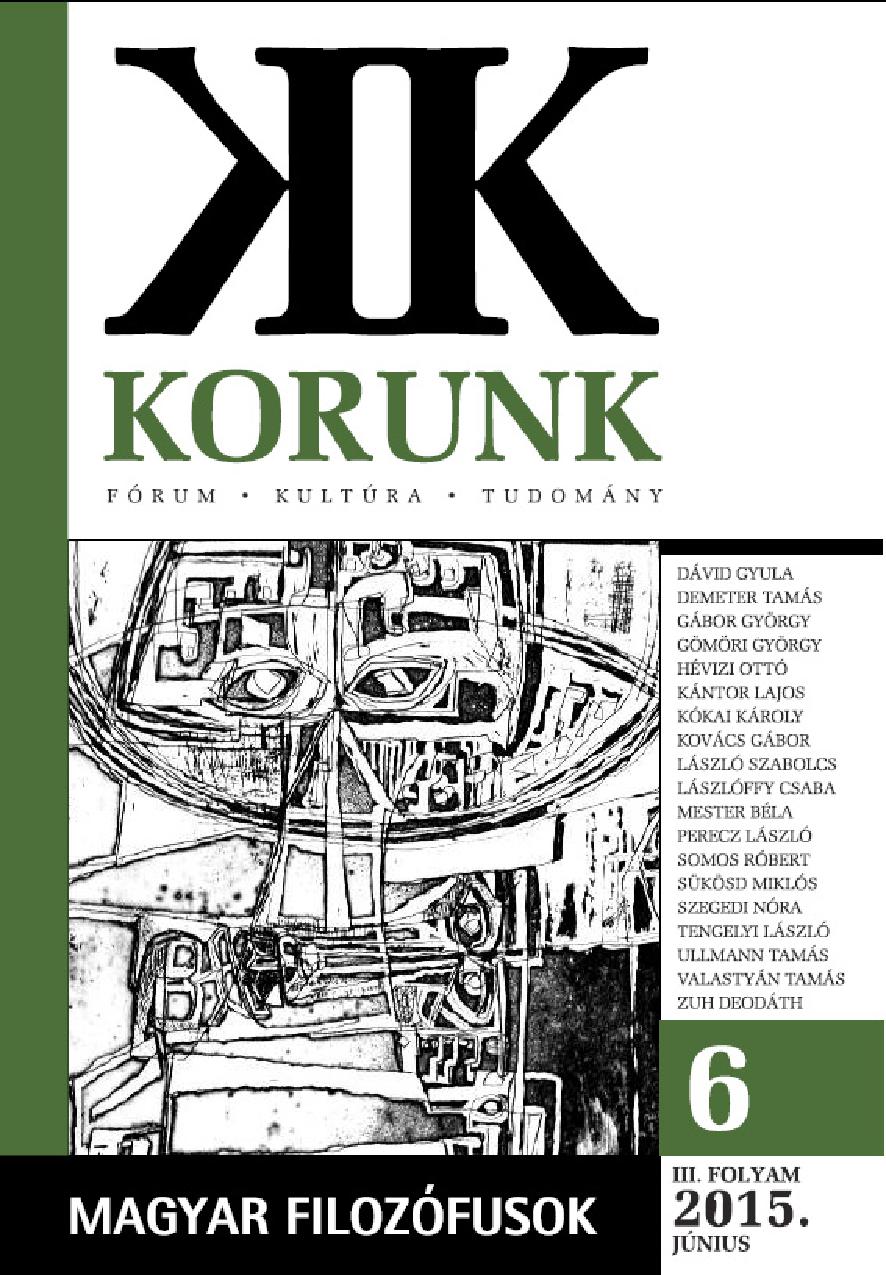
We kindly inform you that, as long as the subject affiliation of our 300.000+ articles is in progress, you might get unsufficient or no results on your third level or second level search. In this case, please broaden your search criteria.


In his early works, László Tengelyi made an attempt to create a theory aiming to unify the “diacritical system” of Merleau- Ponty and the “an-archic” ethics founded by Lévinas upon the thought of “radical alterity”. Later on, Tengelyi turned away from this theory that he himself developed. In my paper, I would like to argue that this ethical approach of his is indeed both possible and relevant, and that one can call it a diacritical ethics. My thesis is based – within the framework of a kind of “philosophical replay” – on two elements: on the radical temporality of the “diacritical model”, and on Tengelyi’s interpretation of the late Kant, whom he calls “the thinker of antinomies”. I believe it is precisely Kant’s wellelaborated antinomies that can reveal the main differences (the main oppositions) of our ethical decisions as well as the temporal dimensions of our ethical theories. Three differences are to be detected and distinguished here, namely those in respect of [1] ethics, [2] morality, and [3] virtue. One can call these differences unbridgeable gaps: gaps [1] between theories founded upon the immanent (present-focused) and transcendent (future-focused) ground; [2] between the theories of deontologism (their measure is always a priori) and consequentialism (their measure is always a posteriori); and [3] between the theories of free will (all these notions reckon with the beginning) and (beginningless) determinism. Nevertheless, these antinomies are not to be resolved. Rather, they exist as limits for considering our ethical problems. It is by these limits that a diacritical space of our ethics is, from time to time, constituted and reconstituted. It is only within these limits that our diacritical ways appear, moving always between the past and future, sometimes crossing each other in radical turns, which Tengelyi calls “destinal events in life history”. The conclusion of the paper is that as the diacritical ways of our “life histories” exist always diachronically in a diacritical space, which is also limited by our thinking of temporality, the theory of a diacritical ethics is a possible, coherent and acceptable approach.
More...
János Erdélyi, a 19th century Hegelian classic of the historiography of Hungarian philosophy has summarised his narrative in the following scheme. The first epoch was the prehistory of Hungarian thought, formulated in a foreign language, Latin; the second one was the long period of the turn from Latin to Hungarian; and the third and last one is when Hungarian philosophy writes its own history, beginning with the foundation of the Hungarian Academy of Sciences. After Erdélyi’s masterpiece on Hungarian philosophy, there have been no serious candidates for a new synthesis until the second half of the 20th century. This paper offers an overview of the last two centuries of the history of Hungarian philosophy in the mirror of its paradigmatic errors. First, it discusses the case of Boëthius de Dacia as a Hungarian mediaeval philosopher, and then the misinterpretation of the early modern works of János Pósaházi and József Rozgonyi, following the pattern of the history of reception. According to the hypothesis of this paper, all these paradigmatic errors have been caused by a wrong formulation of the connection between the universal and the national narratives of the history of philosophy. After an overview of the usual solutions to this problem in the Hungarian historiography of philosophy, the author outlines a new method for establishing the paradigm of an East-Central-European history of philosophy, above, but not instead of the national narratives, which can also modify the universal narrative in several details.
More...
Although his main favourites were German, French and English thinkers, Ákos Pauler, the most respected Hungarian philosopher of the first decades of the 20th century, had also substantial connection with Italian philosophers and works. Treating the topic of the Italian line, according to the chronological order, the following items should be analysed: 1. Pauler’s longer sojourns in Italy before the First World War, when he attended different conferences and made personal relationships with different philosophers, especially with Mario Calderoni. 2. Benedetto Croce’s influence on Pauler and the Hungarian philosopher’s criticism on Croce’s position relating to the problems of pure logic and aesthetics. 3. Pauler’s view on Mussolini and its import for the political ideas of the Hungarian thinker. 4. The reception of Pauler’s Grundlegung der Philosophie in the philosophical school of Naples (Cleto Carbonara, Nicola Abbagnano) and Pauler’s answers to their criticisms. 5. Antonio Rosmini-Serbati’s and Giovanni Peano’s influence on Pauler in his later years in the fields of theistic metaphysics and symbolic logic. The paper focuses on the influences of the early phase of Ákos Pauler’s activity and it deals with the first two points.
More...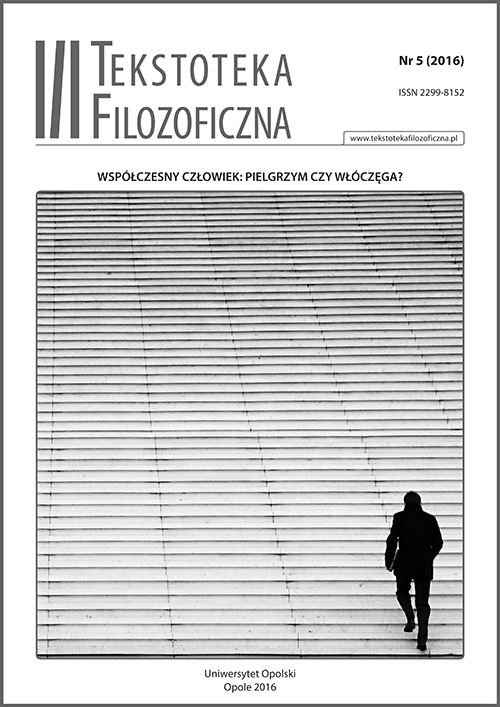
Carl Gustav Jung compared human life to migration, from Self to ego, and back: from ego to Self. TheSwiss psychiatrist was inspired by alchemy. For him, alchemists, similarly to psychotherapists, work withcontents of unconsciousness. From alchemists he adapted two methods in his therapy: amplification andactive imagination. He also had creative and critical successors like Arnold Mindell and James Hillman.They transformed some conceptions of their master. Mindell focused on work with the body, especiallywith the sleeping body. Hillman concentrated on work with metaphors as the best way to recognizea soul. Mindell compared his psychology of process to Taoism. Hillman tried to go back to the polytheisticroots of the Western culture – Greek mythology.
More...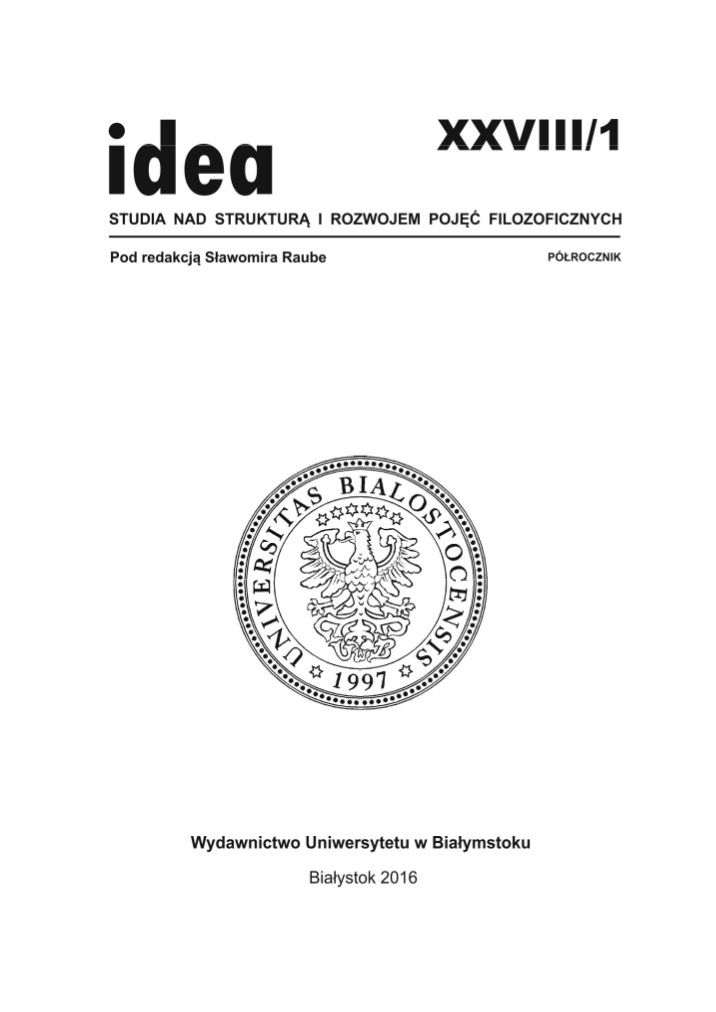
The work is a frame study of heroism, which manifests itself in particular living people and in mythological characters, heroes concerned for welfare, beauty and truth in everyday struggles. It presents the fates of the mythical benefactors of humanity as well as humans absorbed by efforts for their spiritual salvation. The background of the stated problem concerning the entanglement of the hero into myth is “the philosophical disenfranchisement of art". This issue is a specific basis for the presenting of the figure of fined for his noble intentions Prometheus from the painting by Rubens. Referring to the heroism of the people, we can see that it is also not free of sacrifices. It turns out that there is no turning back from the destination, which is the life of every human according to his own conviction. However, only the awareness of the entanglement into myth and the practice of one’s personal religious belief in spiritual liberation can bring the expected relief in the form of true grace.
More...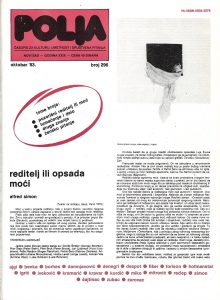
Nije bespredmetno pitanje o smislu obraćanja starini, o naporu da se premosti jaz stoljeća, čak milenija, koji nas dijeli od kultura čijim se duhovnim blagom želimo oplemeniti, posebno kada je riječ o tokovima u kojima ne možemo neposredno prepoznati i vlastita izvorišta.
More...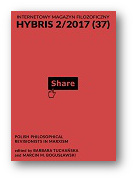
The term ’philosophical revisionism in Marxism’ has several meanings and applications. In our opinion there are good reasons to restrict it to certain philosophical conceptions in the countries in which Marxism or Marxism-Leninism was/is the official ideology and the “state philosophy.”1 In the case of the Soviet Bloc countries the broader term ’revisionism’ is applied to complex political, ideological, and intellectual phenomena that came into being after the death of Stalin in 19532. His death marked the beginning of a new era in these countries, although it became evident only in 1956, when Nikita Khrushchev started the process of de-Stalinization with his Secret Speech delivered at the 20th Congress of the Communist Party of the Soviet Union, in which he denounced Stalin’s repressive politics. In three Communist countries, in Yugoslavia, Hungary, and Poland, philosophical movements revising Marxism happened as a part of this process of de-Stalinization.
More...
The ‘Warsaw School of History of Ideas’ is the name given to a ‘revisionist think tank’ which was led by the historian Bronisław Baczko from 1956 to 1968 in Communist Poland. This group reunited scholars like Leszek Kołakowski or Krzysztof Pomian around questions related to political believes, theological conceptions or utopian thought. Expelled from the University, B. Baczko left Poland and seek shelter in Geneva where he became a Professor of history of Ideas and historiography. In his new home, he developed an original vision on Enlightenment and the French Revolution.
More...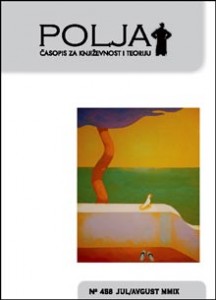
Na mogućnost da ideologija i kritička filozofija paralelno postoje, što za savremeno mišljenje predstavlja uporan problem, ukazao je Mišel Fuko u svojoj knjizi Poredak stvari kao na istorijsku činjenicu. Dok francuski ideolozi kao Destit de Trejsi pokušavaju da skiciraju celokupno polje ljudskih ideja i reprezentacija, Kant započinje kritički projekt transcendentalne filozofije koja, kako Fuko kaže, obeležava „povlačenje mišljenja (pensée) i znanja (savoir) iz područja reprezentacija“. Ovde će nas manje zanimati Fukoova istorijska dijagnoza koja ovome sledi, da se ideologija javlja kao zakasnela manifestacija kritičkog mišljenja, a Kant kao početak moderne, više će biti od značaja smenjivanje triju pojmova – ideologije, kritičke filozofije i transcendentalne filozofije. Prvi pojam iz ove trijade, ideologiju, najteže je formulisati, ali se nadam da će njen naizmenični odnos sa druga dva pojma biti od koristi u ovom naumu.
More...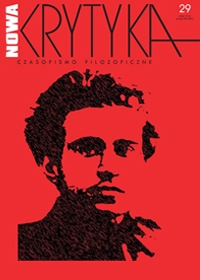
This paper is meant to be a brief account on Louis Althusser’s theory of ideology formulated in Ideology and ideological state apparatuses and on its epistemic conditions of possibility. As such, it can also be seen as a sort of its critique in a Kantian sense. The author traces functional and structural analogies between Althusserian notion of “subject of interpellation” and Cartesian concept of subjectivity. In conclusion, Althusser’s theory of ideology is shown to be strictly a post-Cartesian one. As such, it is perhaps not well suited to analyze non- or pre-Cartesian societies. But more importantly, we may ask: is it possible to think of some radically different, post-Cartesian, and thus post-capitalistic future while still using Cartesian categories?
More...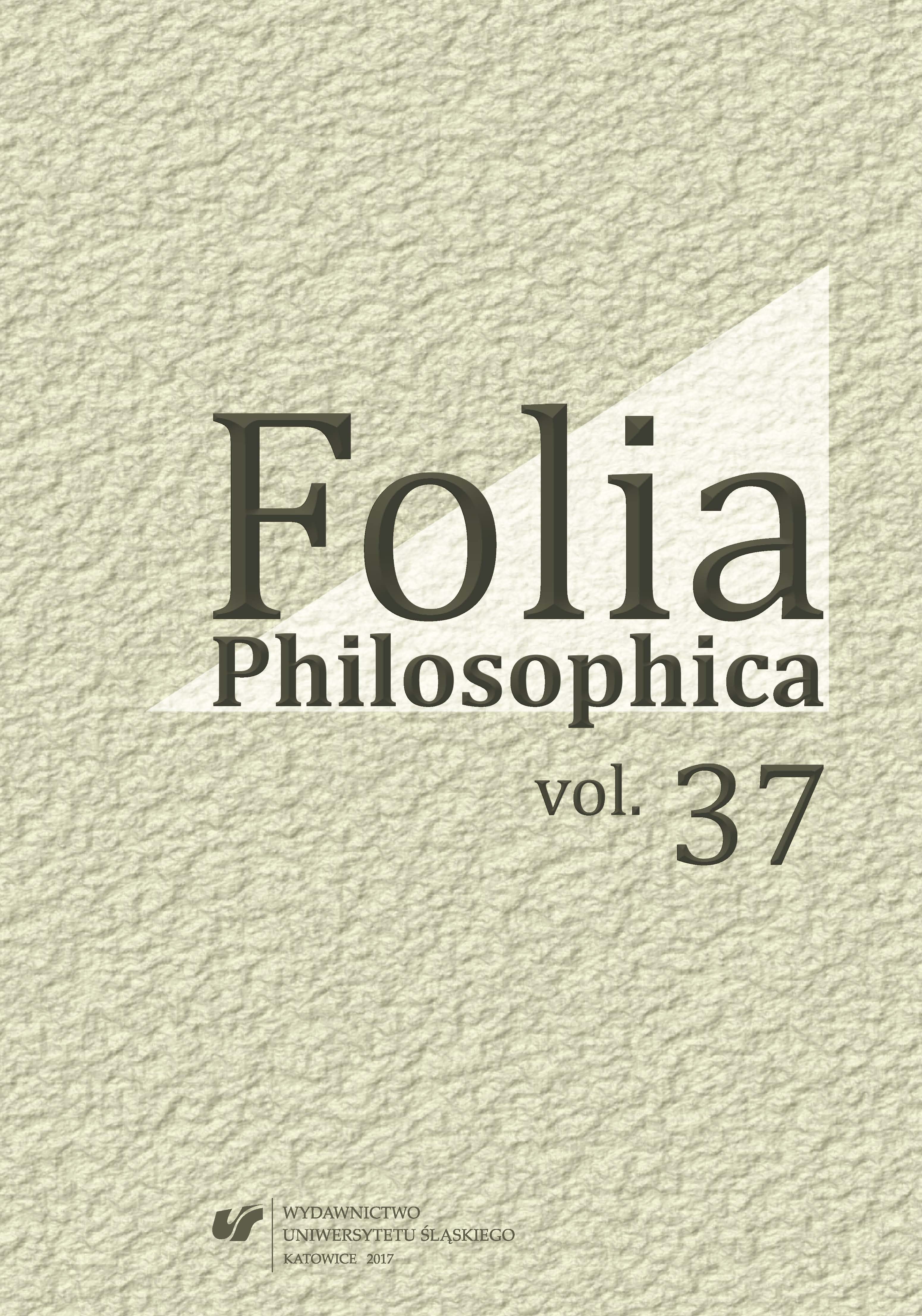
Socrates as a philosopher is remarkably present in Patočka’s thought in all periods of his philosophical life. Patočka accepts the Socratic idea of knowing the unknown. He is developing this idea step by step throughout the various periods of his philosophical work. Socratic knowing of the unknown, transformed successively through the problematisation and the moment of negativity into the principle of historicity, means for Patočka the essential resort to his own concept of philosophy of history in its top form. With this concept, he attempts to advance a new, historical understanding of the sense of human life, and also of the sense of history. For Patočka, history is understood as constant problematisation; it is infinite, unresolved and opened — and it must remain so if we want to avoid the end of history.
More...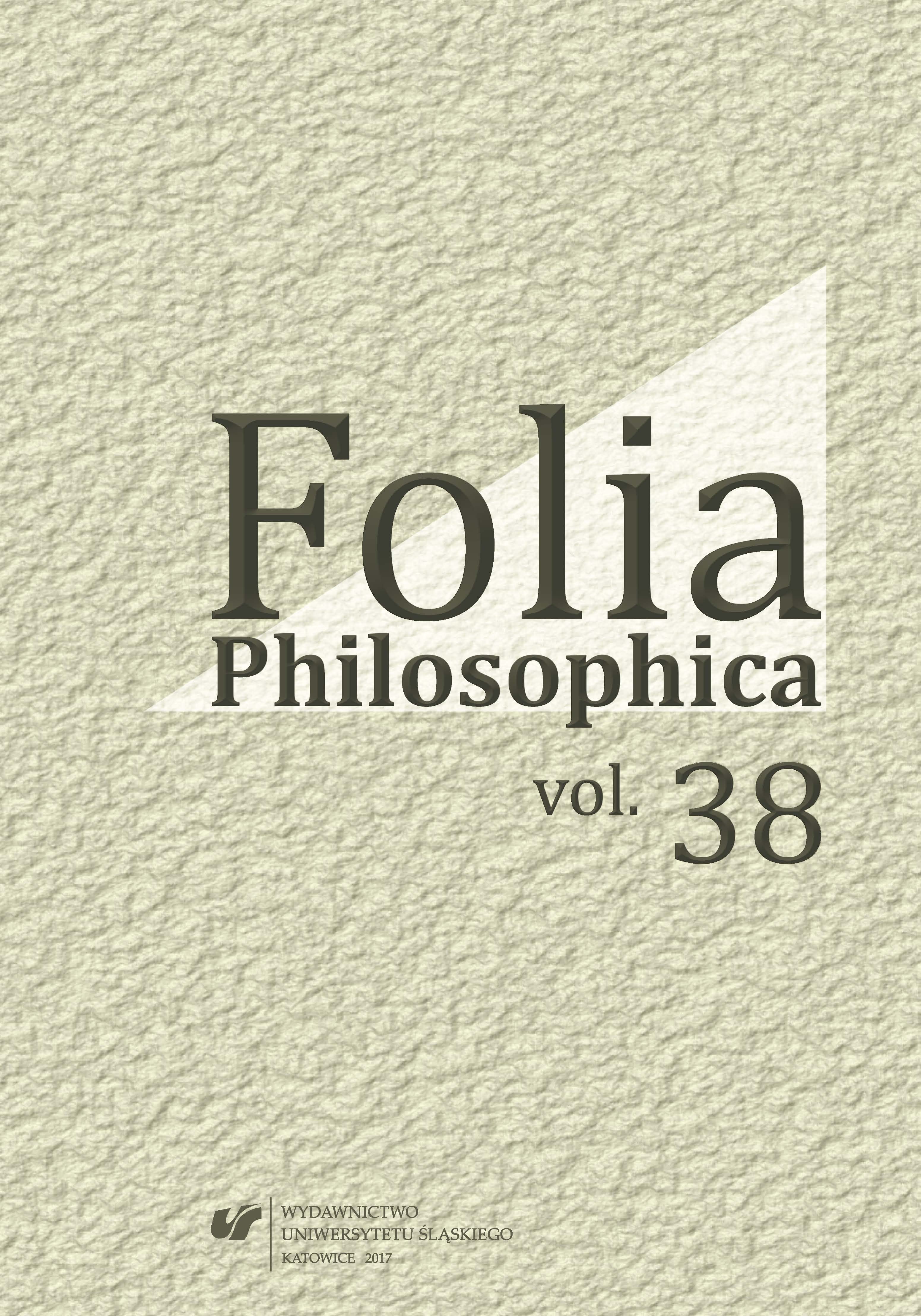
The paper discusses shortly the reception of W. Witwicki’s translations and commentaries to Plato’s dialogues. The emphasis is laid on the initial absence of philosophers among the reviewers of Witwicki’s works, for the overwhelming majority of the reviewers consisted of philologists and writers. In the course of time, when translations by other scholars appeared, Witwicki’s works gained wider reception among professionals and many critical assessments, which were sometimes unjust. His translations, nevertheless, still play a protreptic role as the first.
More...
Benedykt Bornstein belongs to a group of philosophers, who demonstrated an opportunity for development of the scientific metaphysics with the use of the axiomatic method. His general theory of existence was developed under the influence of critical discussion on the major problems related to Kant’s theory of cognition. Arguments presented in this article are to be an attempt to recognise all the assumptions and conditions which our philosopher investigated. It is stressed that in the context of native philosophy Bornstein is neo-kantian as well as a representative of Polish analytical philosophy. However, his epistemological and ontological analyses have not met the proper reception by the environment of Lvov-Warsaw School. Although, he has remained Kazimierz Twardowski’s student in terms of character of his methodological research, strive for terminological precision and the use of formal language in his arguments.
More...
The paper approaches the definition and purpose of purport and creative activity philosophical and historical thought: the European model.
More...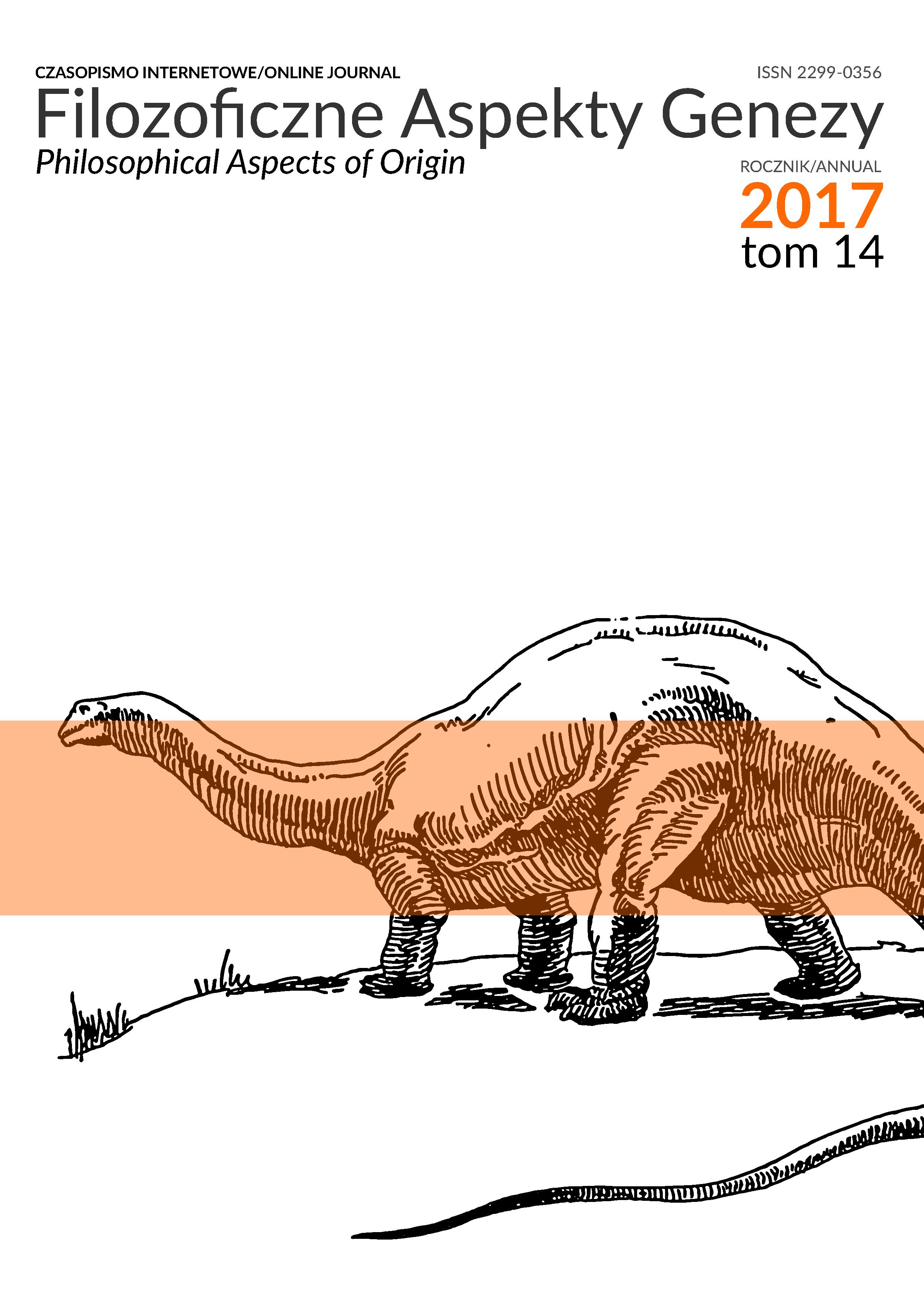
Scientists typically justify methodological naturalism on grounds that the supernatural (or extra-natural) is not testable, that admitting the supernatural (or extra-natural) into science would undermine scientific methodology and reasoning processes, and that methodological naturalism has been demonstrated to be effective. These admitted virtues of methodological naturalism are strongly associated, however, with unscientific metaphysical assumptions which tend to dominate scientific thinking even if they do not follow necessarily from methodological naturalism’s assumptions. For that reason a metaphysically neutral alternative is called for, one that retains methodological naturalism’s virtues while discarding its associated unscientific assumptions. Regularism, defined merely (and intentionally quite simply) as „the methodological expectation of reliable regularity of cause and effect in nature”, fits these criteria, and is recommended as a superior alternative to methodological naturalism.
More...
Francis Bacon divided natural science into physics and metaphysics. He claimed that of Aristotle’s four causes, only material and efficient causes belong to the realm of physics, and that final causes, or teleological claims, belong to the realm of metaphysics. Bacon objected to including teleology in physics because in his experience teleological claims tended to discourage the search for efficient causes for natural phenomena. Because Bacon relegated teleology to metaphysics science largely followed his lead, evolving over the next four hundred years a growing distaste for including any teleological implications in scientific explanations. Bacon claimed that human nature, “will yet invent parallels and conjugates and relatives, where no such thing is”.Yet, as the material and efficient causal discoveries by science have progressed since Bacon’s time, they have in turn revealed more legitimate parallels and conjugates and relatives than perhaps he could have ever imagined. Stated succinctly, the process of exploring material and efficient causes in nature has also given breathtaking justification for also inferring final causes as well. As such, inferences to teleology in science should be allowed where they are warranted by the empirical evidence.The tool for determining whether a teleological inference is warranted is analogy. Bacon could have helped science avoid its gradual but inexorable drift into methodological naturalism if he had emphasized how analogy, used as an analytical tool in the process of induction, legitimately leads to reasonable inferences of teleology in nature.
More...
The term “epistemic framework” was coined by Kazimierz Jodkowski in 2004. That expression, together with the notion of epistemic frameworks, is the outcome of his prior analyses of the evolution-creation controversy.Epistemic frameworks are small, two- or three-element sets of the most general, historically changeable assumptions. These assumptions determine sine qua non conditions of scientific practice. Nowadays, two epistemic frameworks based on methodological naturalism are in competition with the epistemic frameworks of supernaturalism and artificialism.The epistemic framework of antisupernaturalistic naturalism adheres to the precept of accepting only naturalistic explanations for facts and processes. That precept is correlated with a proscription on accepting antinaturalistic explanations, construed in turn as a proscription on referring to supernatural causes.The epistemic framework of supernaturalism follows the precept of accepting not only naturalistic explanations for facts and processes, but also supernaturalistic ones — interventions by a divine being, namely God.The epistemic framework of anti-artificialistic naturalism observes the precept of accepting only naturalistic explanations for facts and processes. That precept is correlated with a proscription on accepting antinaturalistic explanations, construed in turn as a proscription on referring to artificial (intelligent) causes.The epistemic framework of artificialism embraces the precept of accepting, in the context of scientific research, not only natural causes, but artificial (intelligent) ones as well.
More...
From the perspective of today’s scientific methodology, the Bible does not count as a scientific source, at least as far as the natural sciences are concerned. However, for many centuries biblical texts have inspired reflections — including those of a philosophical kind — on the beginning of the existence of all things. The treatise Midrash Rabbah, with its commentary on the Book of Genesis, is an example of such reflections. In spite of the fact that rabbinic interpretation focuses on practical aspects of the Mosaic Law, it often raises philosophical and existential questions, especially in the context of those discussions that involve the gentile philosophers referred to in the treatise. The analysis undertaken here seeks to highlight those rabbinic reflections that appear reasonable even from the perspective of modern science aimed at describing the world and its origin — even though the rabbis were not themselves engaged in any form of the natural sciences and based their reflections exclusively on biblical texts.
More...
This sketch focuses on the problem of genesis as it figures in the play Waiting for Godot by Samuel Beckett.The first part presents the notion of genesis in formal terms, listing the factors that had an influence on the emergence of the tragicomic in Beckett. These consist of a biographical aspect relating to his stay in the south of France during the Second World War, and some cultural inspirations of a philosophical, religious and literary sort. Beckett’s fascination with a phrase deriving from the Confessions of Saint Augustine influenced the work from the point of view of its formal concerns, and acting under its influence, he sought to create a unity of form and content.In the next part of the sketch, the issue of the genesis of mankind is raised. Humankind, afflicted by loneliness since the dawn of time, has sought to reverse this fate — by conceiving Reason and Intellect, and by starting a dialogue aimed at eliminating that very loneliness and despair. Yet this did not bring the expected results, so in response the idea of a transcendent being was created. Ever since that moment, humanity has found itself waiting for the latter to appear, and for the reversal of its fate that this was supposed to bring.
More...